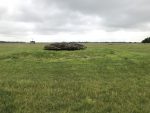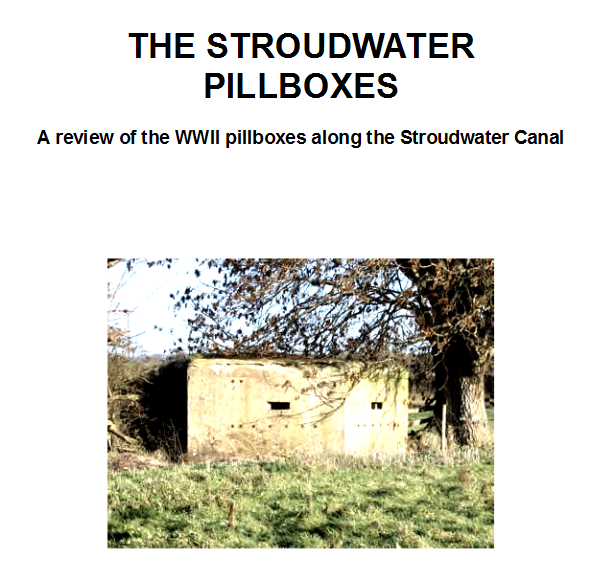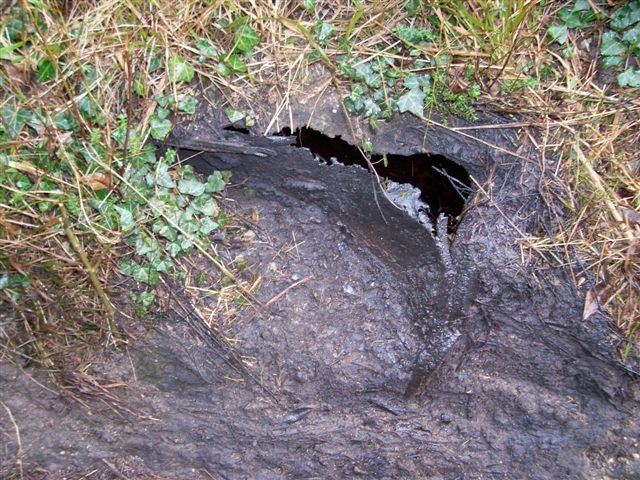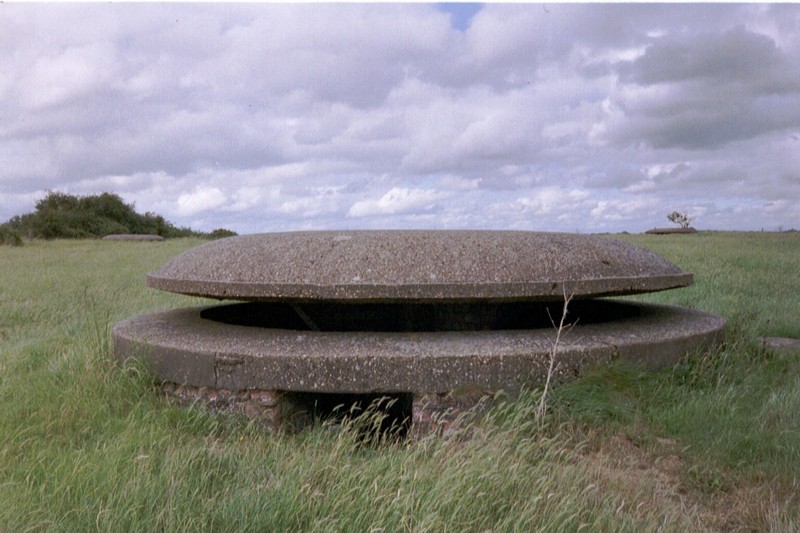
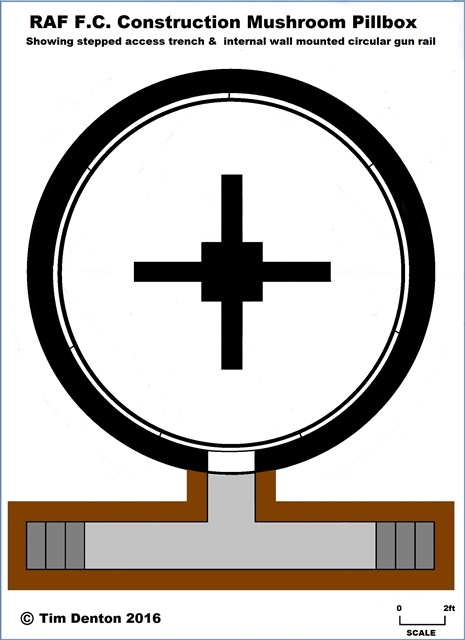
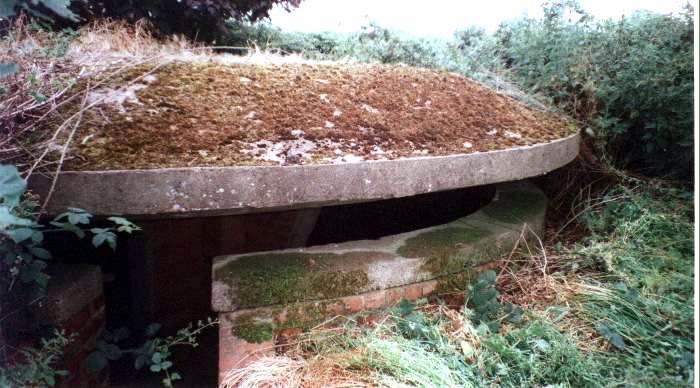
The F.C. Construction Type are also variously termed “Mushroom” due to its shape or “Oakington” & “Fairlop” Pillboxes, probably because examples are present on both these airfields. The type seems to be confined to airfields apparently being found predominantly in the eastern counties of Britain.
When Henry Wills wrote “Pillboxes” in the early 1980s the F.C. Construction Company was still in existence and kindly provided him with drawings. The design was intended to provide all-round visibility and field of fire, with a parasol roof supported on a cruciform wall which stands in a sunken circular pit. The brick sides of the pit rise to meet the overhang of the roof leaving an uninterrupted 360-degree embrasure.
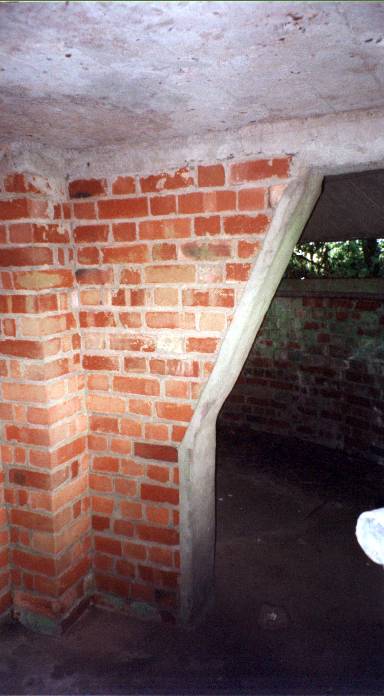
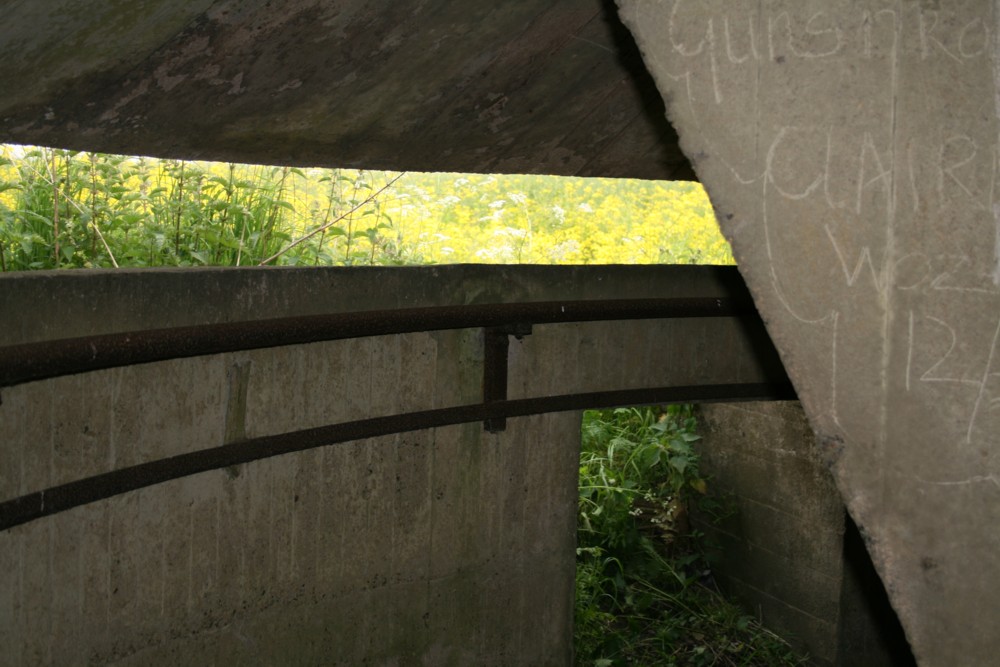
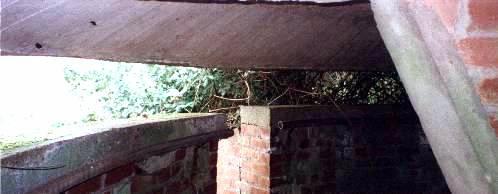
The silhouette is low and easily broken. In some examples the top of the roof is domed, in others it is flat. This is probably more to do with the pouring technique of the contractor than any military consideration.
On the dozen or so English airfields where F.C. Construction Pillboxes were provided they are all very similar. However, north of the border at Peterhead in Grampian, the design is quite different. Here the pillboxes which ring the airfield have the domed roof but the all-round `embrasure` has been bricked up to leave only two deep stepped loopholes for machine-guns on Turnbull mounts. The entrance is similar to that of a Stanton Shelter.
It could be that the Peterhead example came after the Air Ministry directive to thicken walls and limit loopholes.
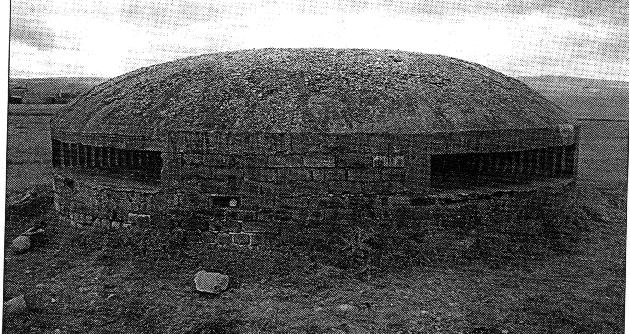
Why do some Airfields have ‘Mushrooms’ but not others?
Both US and British Airfields have them!
Both Expansion Period and Wartime Utility Fields have them!
Airfields both with and without Battle HQ`s have them!
Both Fighter & Bomber Stations have them!
They are also mixed with other types. For example Oakington has six F.C. Construction Pillboxes and six other types. At North Weald there are 2/8 respectively!
This is probably a mystery that will never be solved.
Mushroom Weapon Mounts
All F.C. Construction Pillboxes with the standard 360-degree embrasure have a tabular rail running round the inside of the pillbox just below the embrasure. This is a support for a gun mount. The weapon is fixed onto the mount and then moved around the pillbox as required. At the pillbox entrance there is obviously a short break in the rail to allow access.
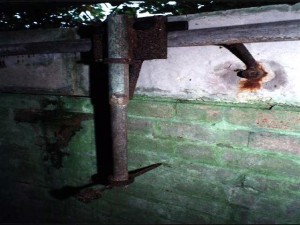
Note the ‘Pickaxe head’ at the bottom which was probably to keep the mount vertical.
Where Can I Find A Mushroom?
These locations were reported in 1997. Since then some may have been destroyed and new examples may have come to light. If you have any new information please send it in so that the location list can be brought up to date.
Mushrom Pillbox Locations
Mushroom Pillboxes Photos By Steve Carvell
Two photos attached of the mushroom pillboxes at former RAF Long Marston, both dating from June 2003.
The three mushroom pillboxes are each in a similar good condition.
Also attached are photos of mushroom pillboxes at former RAF Grafton Underwood and RAF Hinton-in-the-Hedges, all in Northamptonshire. (August 2004).
The RAF Hinton-in-the-Hedges site is an excellent example of an RAF defended site with a Type 11008/41 BHQ, two mushroom pillboxes and three seagull trenches all in very close proximity.
RAF Long Marston
Photos by Steve Carvell. NGR: SP 176-494 & SP 175-493
Mushroom pillboxes at former RAF Long Marston, both dating from June 2003. All mushroom pillboxes are in a similar good condition.
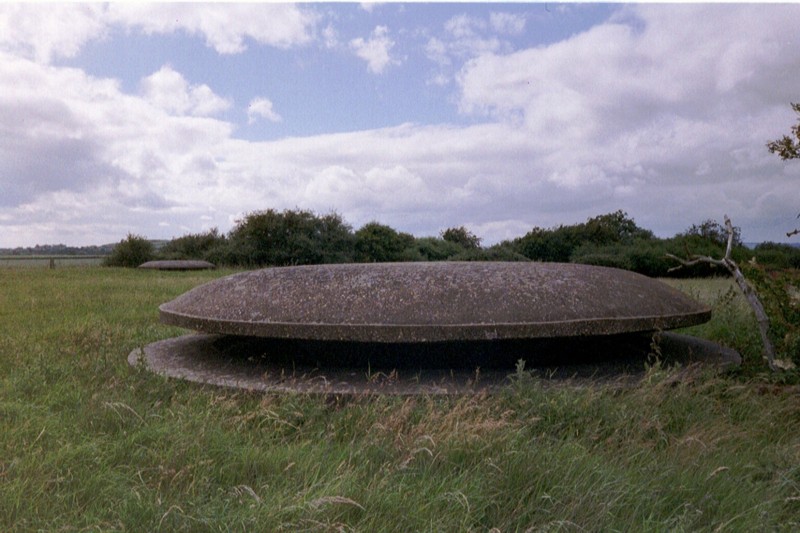

RAF Grafton Underwood
Photos by Steve Carvell. NGR: SP 929-821 7 SP 923-807
Photos of mushroom pillboxes at former RAF Grafton Underwood (August 2004).
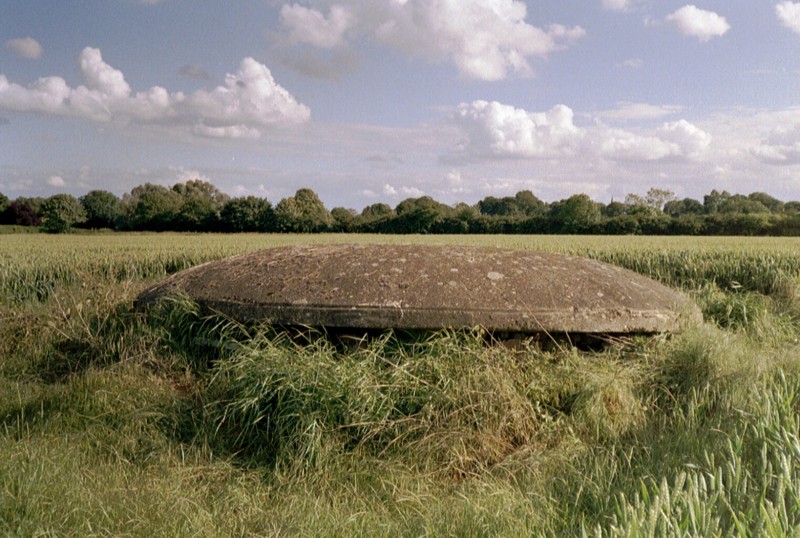
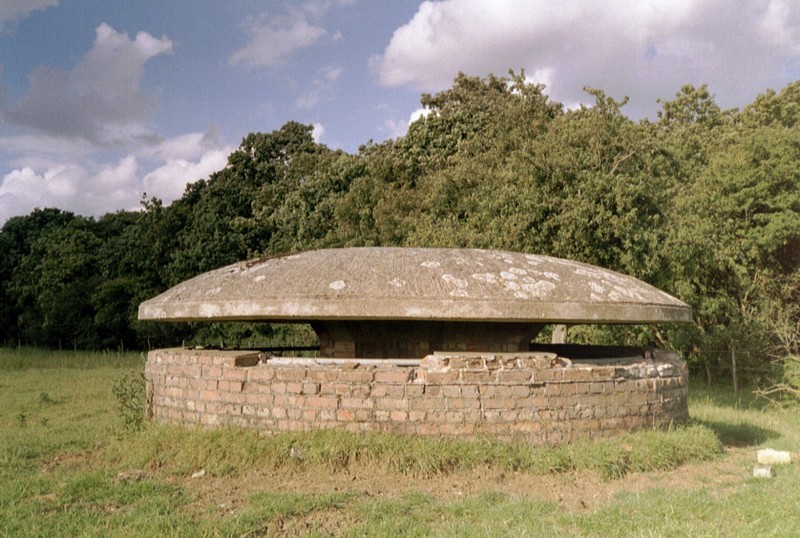
RAF Hinton-In-The-Hedges
Photos by Steve Carvell. NGR: SP 550-372
The RAF Hinton-in-the-Hedges site is an excellent example of an RAF defended site with a Type 11008/41 BHQ, two Mushroom Pillboxes and three seagull trenches all in very close proximity.
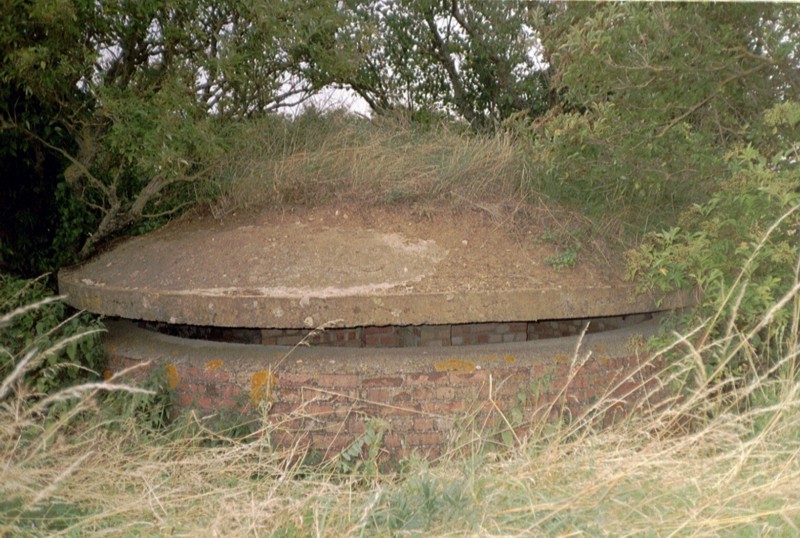
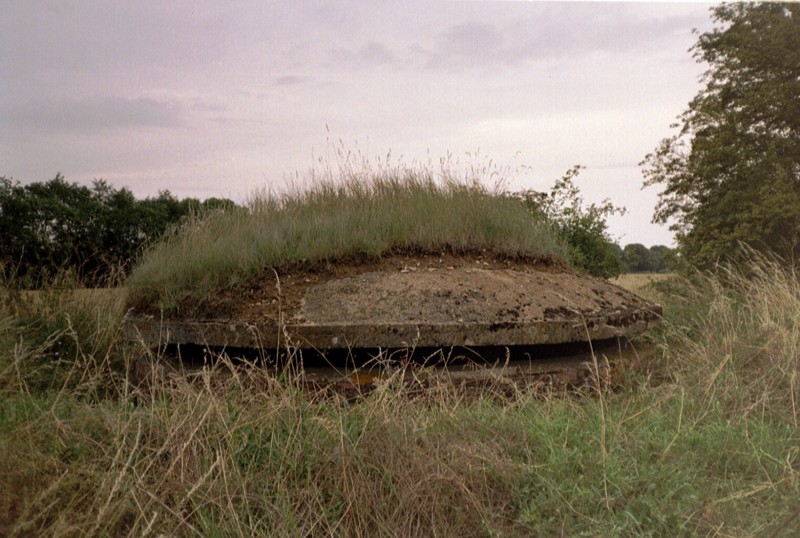
RAF Atcham
Photos by Graham G Matthews. These photographs were taken of the only Mushroom Pillbox at Atcham Airfield, near Shrewsbury, Shropshire. It is located on the eastern side of airfield on slightly rising ground. It’s commanding field of fire across the surrounding area where the runways were located would have provided some devastating .50 calibre fire to any invader. The local farmer has been contacted and hopefully PSG Members will be carrying out some undergrowth clearing and light restoration work in the spring of 2002.
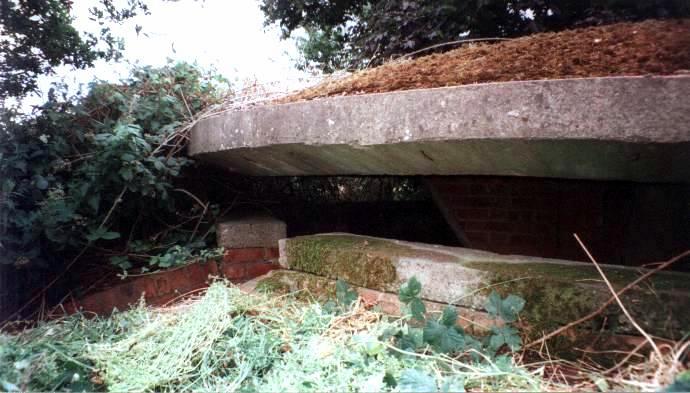
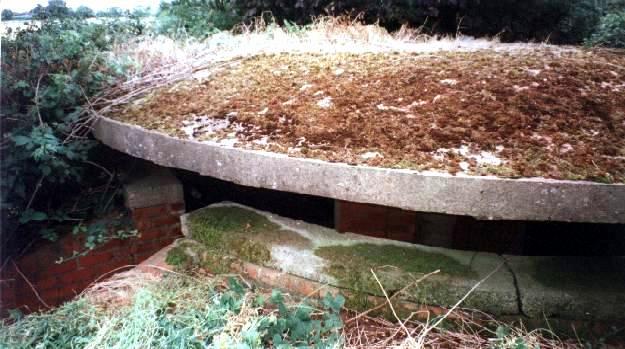
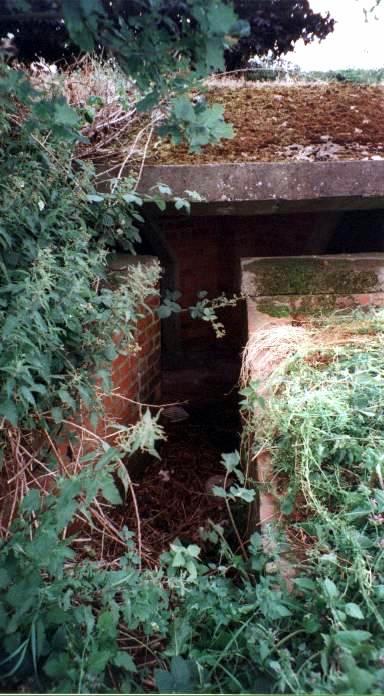
RAF Burnaston
Photos by Richard Collins.
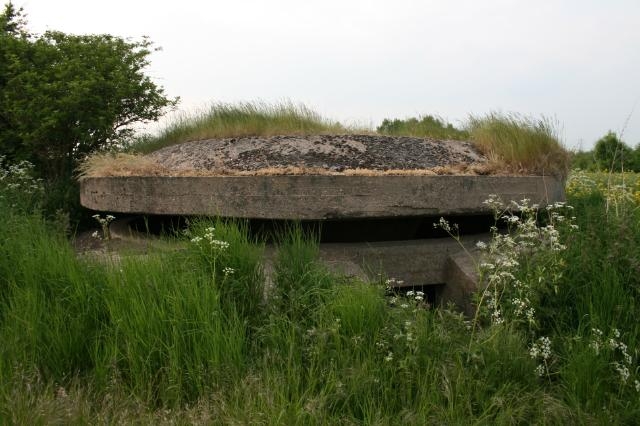
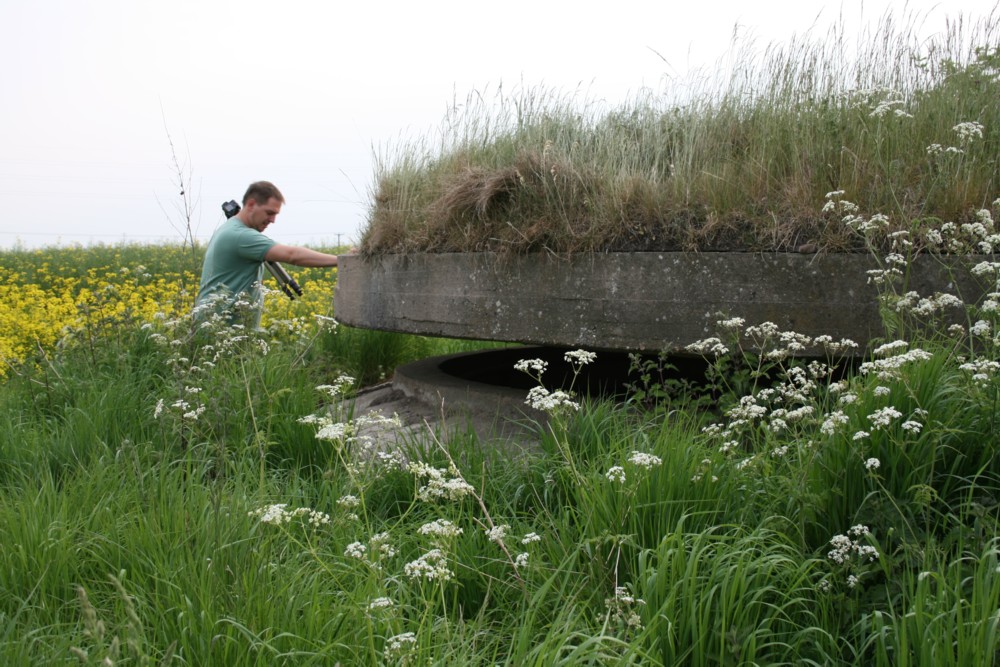

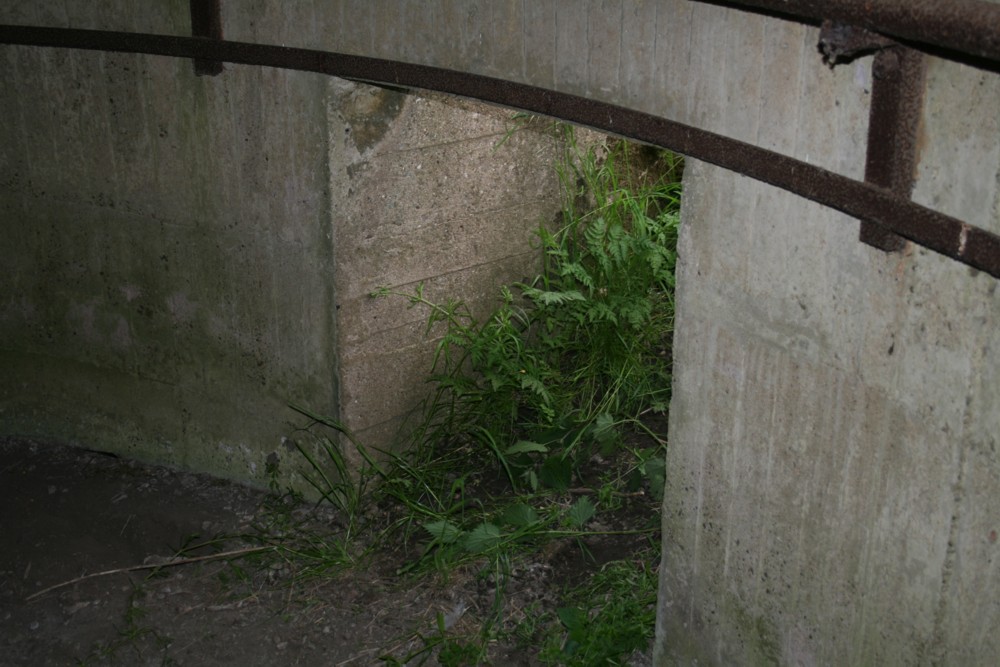
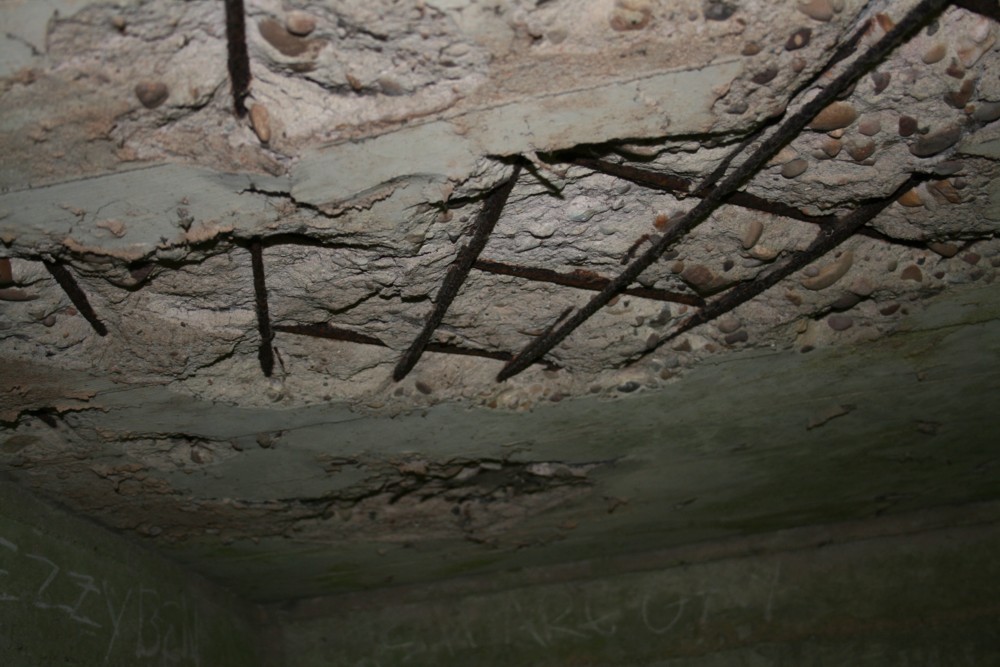
Death Of A Pillbox
Dear Curator
I stumbled across your web-site after a chance conversation brought back memories of a pillbox I remembered back in the 1950s or 60s that was removed as part of the development phase of a housing estate. A search on the internet for “pillbox” brought up the link and I have very much enjoyed browsing the pages of this excellent site.
Your site contains a list of mushroom type pillboxes around what was Burnaston Airfield in Derbyshire – now the Toyota car factory. All of the boxes are listed as “possibly destroyed”. I do remember one of these being destroyed in 1995 – possibly SK 2936 3008 (see attached cutting from local newspaper). This pillbox was within the general area used for the construction of the A38 / A50 traffic island. However, I can report that at least one mushroom pillbox still survives in the area – possibly SK 2858 3031. It is in arable land on the south side of the A50 just after the junction with the A38. If I get an opportunity I will obtain an accurate map reference and take photographs.
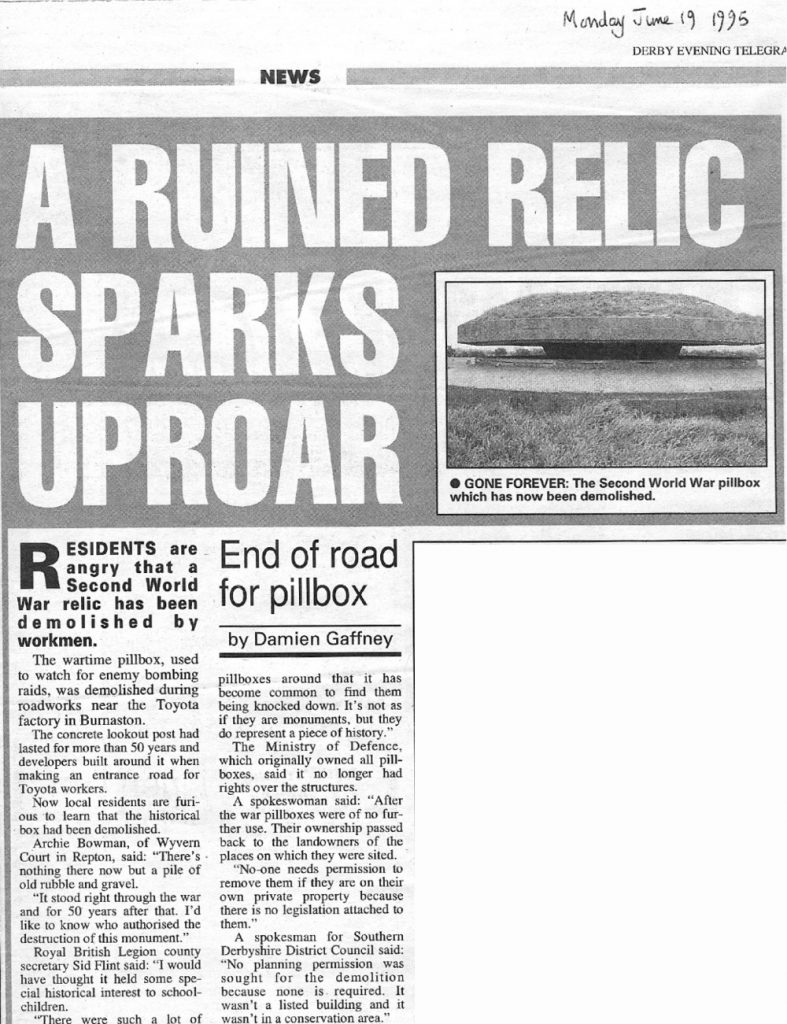
Regards . . . Phil Brown


